APRIL 4

My Neighbor Totoro (Hayao Miyazaki, 1988) = 4/5
I have a confession to make, and I have a feeling some film enthusiasts won't take it very well. My Neighbor Totoro is the first ever anime film I have seen. That's right...it took me this long to get around to Japanese animation. As an animation film studio, Studio Ghibli is as loved as Pixar. Both have serious universal followings. Watching My Neighbor Totoro, it wasn't hard to see why Ghibli films have millions of admirers around the world. I enjoyed this film for the way it made me feel, rather than for what it depicted. I had no moral or ethical objections to the plot. It's just that there isn't much of a plot to begin with! Of course, it is not a bad thing for a film to be situational instead of plot-driven, although I do wish I had something to follow here. What most people love about this film is its insistence on radiating joy. There are no forced plot complications or "bad guys". The film affirms that solace is to be found in imagination, and that the harshness of life is never insurmountable. You can be happy if you want to be happy. The animation is beautiful, and I think I'll revisit this one day to see if I can enjoy it a little more.
APRIL 7

Last Year at Marienbad (Alain Resnais, 1961) = 4/5
Now, I could go all pseudo-intellectual on you and concoct some bizarre ruminations about this film, but I won't do that. Instead, I will admit that this film was way too complex for me to comprehend. This makes Christopher Nolan's Memento seem as obvious as a Nicholas Sparks adaptation. The basic premise is that an unnamed man tries to convince an unnamed woman that they have met before, but the woman has no recollection of such an occurrence. The film shifts back and forth between reality and fabrication, or maybe it doesn't. I just couldn't tell. This inability to distinguish truth from fiction makes it a frustrating watch, and if it weren't for the gorgeous and compelling cinematography by Sacha Vierny, it would have lost me completely.
APRIL 10

Sex, Lies, and Videotape (Steven Soderbergh, 1989) = 4.5/5
This film is equivalent to a Jenga tower where the blocks are lines of dialogue. Soderbergh's script is so tight and expertly crafted that removing any line of dialogue puts the whole film at risk of tumbling down. It's a wryly humorous, intelligent, and sexy film that touches on themes of infidelity, guilt, sexual repression, and jealousy. There is not a single bad performance here, and it is thrilling to see these characters play hacky sack with their emotions.
APRIL 11

Badlands (Terrence Malick, 1973) = 4.5/5
Having only watched one other Malick film before this—The Tree of Life, which simultaneously fascinated and bored me—I was a little nervous going into Badlands. The film is loosely based on the real-life murders committed by Charles Starkweather and his girlfriend, Caril Ann Fugate, in 1958. Martin Sheen plays Kit, a James Dean Rebel Without a Cause type who seduces a teenage girl named Holly (Sissy Spacek) into a relationship as well as a violent killing spree. Most people who talk about this film describe it as "visual poetry"—a term generally associated with Malick's work in general. I tried to resist that cliche, but how could I? The film is imbued with bittersweet, lyrical undertones. I think the best poetry takes two opposing ideas or images and moulds them into a magical synthesis. In Badlands, we have Kit's brand of rough, roguish rebellion contrasted against Holly's demure innocence and free-spirited susceptibility. The images that complement their journey are breathtakingly beautiful.
APRIL 13

Midnight Cowboy (John Schlesinger, 1969) = 4/5
I thought the characters in this film were a bit too inaccessible. Jon Voight plays Joe Buck, a young man who quits his job at a Texan diner and heads to New York City with hopes to make a living as a male prostitute. There, he befriends Enrico 'Ratso' Rizzo (Dustin Hoffman), a con man battling polio. The performances are excellent, and it's compelling to watch the adventures these two men go on. I just couldn't get inside the heads of these characters whose lives are so distant from my own. To me, the film was endearing because of its pulsing spontaneity (pay close attention to the hallucination scene at the Warhol-esque party), and its depiction of urban alienation, which is right up there with Scorsese's work in Taxi Driver.




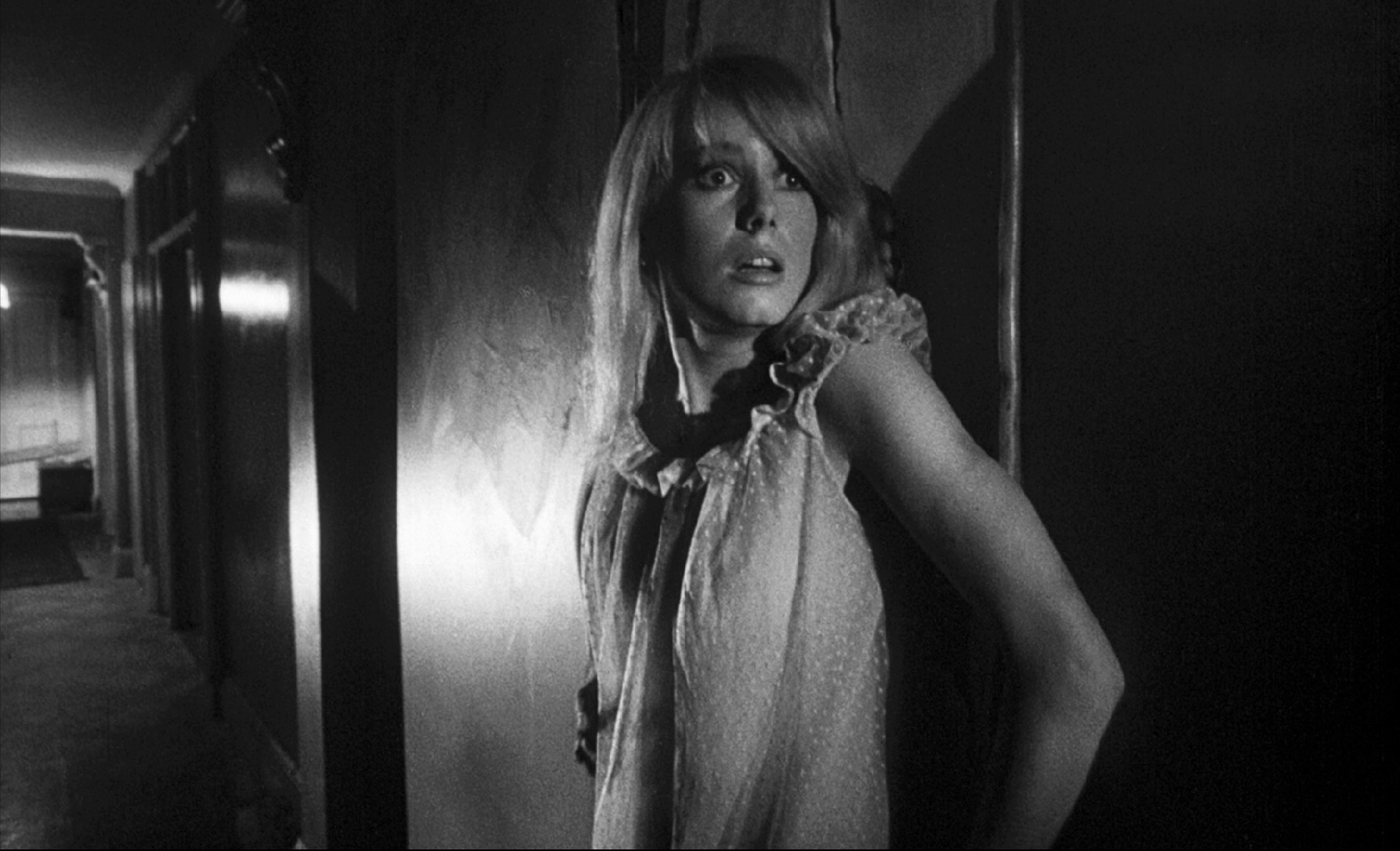


The Devil's Rejects (Rob Zombie, 2005) = 3.5/5
Ten years ago, I rented Rob Zombie's House of 1000 Corpses from my local video store and watched it with complete indifference. It bored the absolute shit out of me. I was not entertained. I was not scared. The Devil's Rejects is the sequel to that film, and I was surprised by how much of an improvement it was. Yes, this film is nasty and unpolished, but it works thanks to a morbid sense of humour. The film exudes grindhouse tones, and Zombie injects his characters with distinct personalities. We may not like them, but we invest in the story because we are interested in their motives. It is simply a whole lot of sick, grisly fun.
APRIL 14

Children of Men (Alfonso Cuarón, 2006) = 5/5
Rarely have I seen a film that is so immersive. Some film dystopias feel too other-worldly and make it difficult for viewers to engage with the plot. The United Kingdom as depicted in Children of Men does not look like a movie set. Cuarón makes us feel as though we are seeing these events with our own eyes. His sense of pace is astounding. He knows exactly when to quicken the action and when to put the brakes on. I thought the premise was very interesting—a world where procreation is no longer possible. While themes like survival and hope are well-trodden, the film addresses them with refreshing insight, and I was amazed how Cuarón's vision came to fruition so coherently.
APRIL 15

Singin' in the Rain (Stanley Donen & Gene Kelly, 1952) = 5/5
When the end credits rolled, I was kicking myself for not seeing this film earlier in my life. HOW could I have bypassed this classic for so many years!? The movie follows a silent film production company and their struggle to transition to 'talkie' films. I felt a cathartic release while watching this film—a type of joy that only comes around with a very particular type of movie. It is one of the greatest films ever made, and I extend that opinion as someone who hardly ever watches musicals.
APRIL 16

Bully (Lee Hirsch, 2011) = 3/5
Its intentions are noble and its subjects are compelling, but I don't think this documentary actually achieves anything. Sure, the organisations detailed in this film may be making progress, but the film itself...what does it achieve? It's moving to hear the stories of young people who are victims of bullying, but it feels like we've heard this sort of thing before from people in our own lives. If you haven't been bullied or you don't know someone who has, then you just don't know enough people. What would have boosted this film is some perspective from bullies. What makes a bully tick? Why do they get off over inflicting abuse on others? The film spends too much time showing grieving families and not enough time examining bullying as a social problem. We know that bullying is inherently cruel and hurts anyone who falls victim to it. I was waiting to learn something I hadn’t heard before (perhaps some findings from academic studies), but that something never came. One last criticism is that some of the scenes—the bullying scenes in particular—felt rather unnatural and choreographed. Making a documentary about bullying is intrinsically difficult. The worst stuff isn’t going to happen when the cameras are around, and even if it did, it would probably be in bad taste to film it. With this considered, I don’t know if it’s fair to blame director Hirsch, but such scenes did stem the flow of the film.
APRIL 17

Repulsion (Roman Polanski, 1965) = 4/5
Damn. I really wanted to like this one more than I did. Don't get me wrong...Repulsion is a terrific film, but it's one you admire more than you enjoy. It's fascinating to watch Polanski's stylistic choices here, knowing he hadn't really established himself as a director of feature films. He packs this thriller with scares—genuine scares, not "It's Only the Cat" scares. We watch with morbid curiosity as a young woman named Carol (played by the gorgeous Catherine Deneuve, pictured above) is left alone in the apartment she shares with her older sister. Slowly, Carol loses her grip on reality, descending into a state of constant paranoia. I thought the ending was frustratingly inconclusive, but I admire Polanski's ability to create a cold, ominous atmosphere. Note: this is the first film in Polanski's "Apartment Trilogy". Rosemary's Baby (1968) and The Tenant (1976) would follow.
APRIL 18


The Truman Show (Peter Weir, 1998) = 3.5/5
My opinion is that The Truman Show had the potential to be one of the greatest films ever made. I mean that sincerely. The final product was an ambitious film that was mostly good but sold out towards the end. For those who don't know what the film is about, Jim Carrey plays Truman Burbank, a man who discovers his whole life has been the subject of a television show. The best scenes in the film rely on dramatic irony, and we want to smash our televisions and pull Truman out of there. As enjoyable as the film is, it's also very disturbing. Where the film falters is in its awkward ending. I won't spoil what happens, but the conclusion is severely disappointing. It's so painfully convenient and I expected so much better from a film of this calibre. Disregarding that, you should see this film. The satire and social commentary is not groundbreakingly original, but the film itself feels ahead of its time.
APRIL 19

Look Both Ways (Sarah Watt, 2005) = 3/5
I've seen plenty of Australian films that commit the terrible crime of being emotionally overt. Characters are too easy to decipher, and the emotional spectrum is not very broad. With Look Both Ways, we have the seeds for a good film, but they are buried beneath spoonfed emotional cues. An alternate title could have been 'This is the Part Where You're Meant to Cry'. Good performances make this watchable. Note: this film provides a classic example of Savona's Three-Star Principle, which goes: Whenever you give a film 3 out of 5 stars, your words on the film will be mostly negative, even though 3 is technically a positive rating (above 2.5).



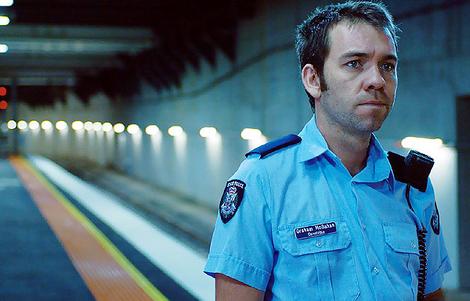
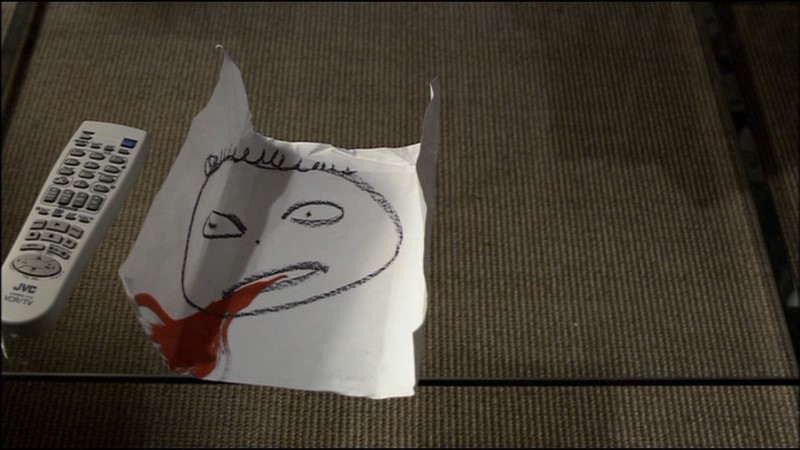
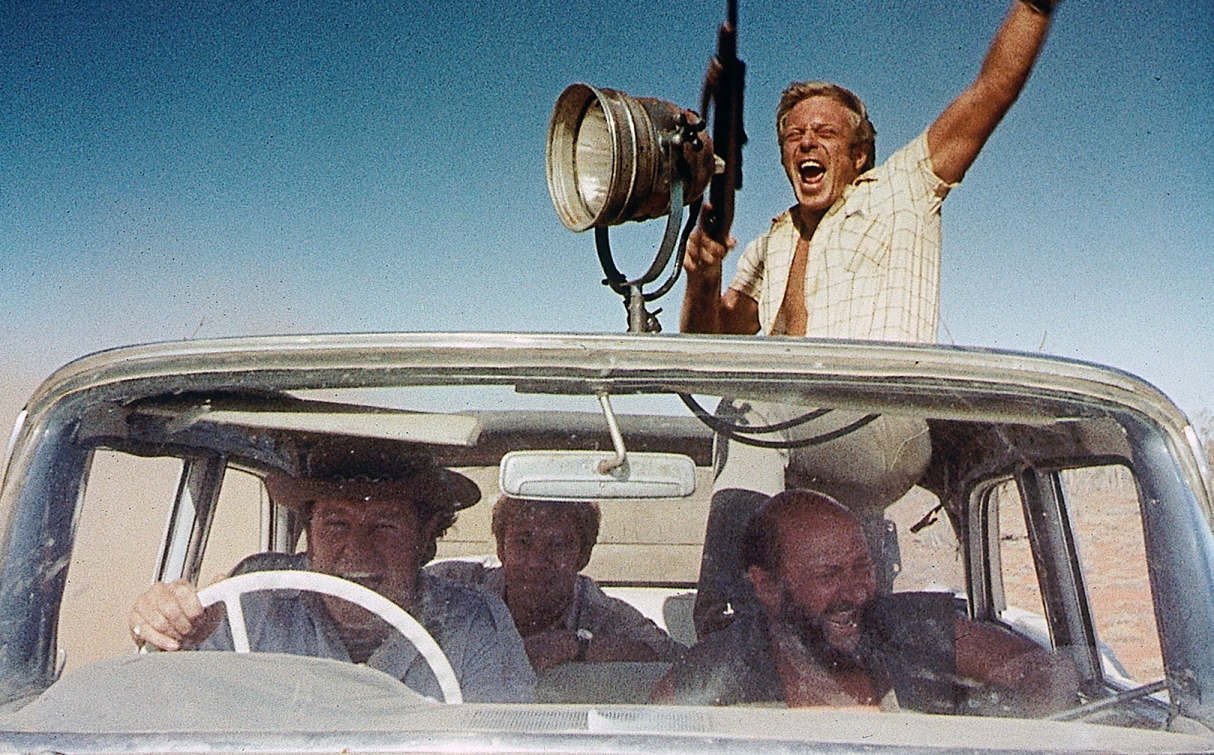

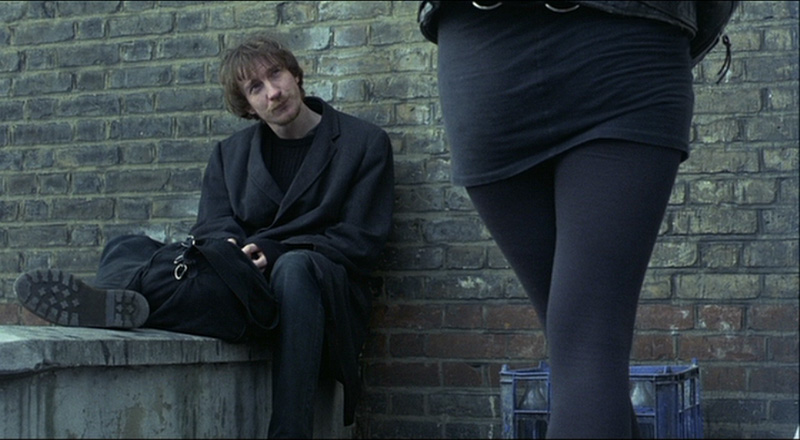

The Skin I Live In (Pedro Almodóvar, 2011) = 4/5

Pieces (Juan Piquer Simón, 1982) = 3.5/5
You should know by now that I'm a huge admirer of Juan Piquer Simón's Slugs—a movie about, well, killer slugs. Pieces is yet another trashy horror film by Simón that has stolen my heart. The killer in Pieces would literally steal your heart. He prowls a college campus picking off innocent victims to use their body parts for a human jigsaw puzzle. Based on that last sentence, you will know whether or not the film is for you. Is this film cheese? Fuck yes! But hey, it's gourmet cheese. It actually tries to be competent and memorable, and the ending is just hilarious.
APRIL 20

Man on Wire (James Marsh, 2008) = 4.5/5
This is simply one of the greatest documentaries I have ever seen. Through a combination of interviews, archive footage, and stylised black-and-white reenactments reminiscent of a heist film, Man on Wire tells the fascinating story of Philippe Petit. Petit is best known for his courageous 1974 high-wire walk between the Twin Towers of the World Trade Centre. No harness. No safety net. It takes a certain kind of sickness to attempt something like this. However, we see that Petit is sane and intelligent. He did it because he could, and because it made him feel alive. This is a beautiful documentary that meditates on a life lived with graceful abandon. It works so well because Petit and his friends inject their personalities into recounting the story. It will make you feel lazy, but in a good way. You'll sit there and think, "Geez, what have I done in my life that's this exciting?"
APRIL 21

No (Pablo Larraín, 2012) = 4/5
No is a competent though flawed political drama about an advertising executive's campaign to overthrow the Pinochet regime in 1988 Chile. Some of the editing in this film is rather erratic and distracting. Before you ask...no: the film was not shot using the Toaster filter of Instagram. Larraín used low definition, ¾ inch Sony U-matic magnetic tape to film the movie, which had the effect of simulating television news broadcasts from late-1980s Chile. Overall, this is a well-scripted film that fuses subtle humour with political drama to tell an absorbing story.
APRIL 22

Noise (Matthew Saville, 2007) = 4/5
I find it interesting that this film is titled Noise, because it is at once quiet and loud—a modest achievement crafted by a director who can play cinema by ear. If the plot were more cohesive, this could have been something extremely special. It's one of the better Australian films of recent years, and I thoroughly enjoyed the performance by Brendan Cowell (pictured above).
APRIL 23

Caché (Hidden) (Michael Haneke, 2005) = 4.5/5
In Caché, an upper middle-class family in Paris is terrorised by a series of surveillance tapes that keep showing up on their doorstep. The tapes show the front of their own house. Someone has been filming from outside, and soon the tapes are accompanied by ominous drawings such as the one pictured above. This film is an exercise in restraint from one of the most skilled directors cinema has ever seen. Haneke understands that less is more. Ambiguity is a virtue in this gripping thriller, which carries political undertones concerning Algeria-France relations. Once the film is over, we are left to speculate, and we accept there may be no definitive answer to the film's most vital question.
APRIL 24

Wake in Fright (Ted Kotcheff, 1971) = 3/5
I thought I would enjoy this film a lot more than I did. I was hoping for an effective exploration of the "stranger in a foreign land" trope, similar to something like The Wicker Man. What I saw was a film with plenty to say but no idea how to say it. It spends too much time wallowing in its provocations, and not enough time developing its characters, who all feel like reincarnations of one another. The climax of the film is a kangaroo hunt which consists of footage from an actual cull. It is hard to watch, but then again, the entire film is a bit of a bore. I must commend it on its visual style, though. It features beautiful cinematography by Brian West, which really makes the outback come to life.
APRIL 25

Winter Light (Ingmar Bergman, 1963) = 5/5
Winter Light must surely be one of the greatest films ever made. It is the second film in Bergman's "Trilogy of Faith", sandwiched between Through a Glass Darkly and The Silence. It is about private struggle, cognitive dissonance, the shortcomings of faith, and the restorative power of love. On a cold Sunday morning in winter, a pastor named Tomas delivers a service for a small congregation in a rural church. He is feeling sick and going through a crisis of faith. After mass, a local fisherman looks to Tomas for advice about anxiety, but all Tomas can offer is details of his own dilemma. He can no longer deal with God's silence. Tomas' atheistic ex-mistress, Märta, reaches out to him with several gestures of love, but Tomas continually rejects her. Tomas is a broken man who has tired of the one-way communication he feels in his faith, and who has forgotten how to love. The film was an extremely personal one for Bergman, who claimed he only "realised who he really was" through the making of Winter Light. He would also say, "I think I have made just one picture that I really like, and that is Winter Light." Well, Mr Bergman...thanks to this film, you are now my favourite director of all time.
APRIL 26

Naked (Mike Leigh, 1993) = 4.5/5
A darkly comic look at a tortured soul in search of purpose in post-Thatcher London. David Thewlis is astounding, and the script is bursting at the seams with snappy dialogue. At the heart of the film is the notion that some people never change, even when they have a perfectly good opportunity to do so. The Thewlis character is a lonely though intelligent soul who treats every other person as a receptacle for his complex views on existence. He lives a self-destructive lifestyle that he cannot escape because of routine. An overlooked gem and my first ever Mike Leigh film. I will definitely be watching more of his work.
APRIL 27

The Skin I Live In (Pedro Almodóvar, 2011) = 4/5
Almodóvar is renowned for the melodramatic undertones he creates in his films. His films play out like soap operas for the intellectual. This is only my third Almodóvar film, having previously seen Talk to Her and Bad Education. This is definitely his darkest work that I've seen, and Almodóvar himself has described it as "a horror story without screams or frights." This plays out like a Freudian nightmare.


APRIL 28

4 Months, 3 Weeks and 2 Days (Cristian Mungiu, 2007) = 4/5
The film is about a young student who tries to arrange an illegal abortion for her roommate in Communist Romania, during the final years of the Ceauşescu regime. It was a very tough film to rate. I loved the style of filmmaking (very claustrophobic) but when it was over, I felt deeply dissatisfied because I had expected so much more to happen. The film gives nothing away for free. You must always be listening and observing to the fullest extent. All in all, it is extremely well-made. I just wish, on a personal level, I had connected more with its content.
APRIL 30

Almost Famous (Cameron Crowe, 2000) = 5/5
I've seen films made with more expertise, but few that are as intimate and personal. Am I saying that my love for this film is grounded in sentimentality? Yes, I am. It cast a wondrous spell on me. One of the reasons we go to the movies is to experience an escape, and if you love music, this film is 122 minutes of pure ecstasy. This is one of those movies where the most poignant scene doesn't come at the end, but instead occurs around halfway into the film. Groggy after a night of LSD consumption, Stillwater guitarist Russell boards his band's tour bus along with the other members. Elton John's Tiny Dancer is playing on the bus' stereo system. One member of the band begins to sing along, which incites everyone else to join in, including the previously forlorn and out-of-sorts Russell. Also on the bus is young journalist William Miller and 'Band Aid' Penny Lane. William turns to Penny and says "I have to go home." Penny flashes William a mystified look and reassures him, "You are home." We then see William lay his head on Penny's shoulder as the rest of the bus continues to sing in gusto. This scene is a comment on the way music can make us forget our worries, and how it can act as a unifying force. Movie scenes rarely get as perfect as this. As someone who aspires to make a living as a journalist (I'm 20 now), I can only hope for moments as meaningful as those experienced by William in the film. Yes, this is just a movie, but a boy can dream.
No comments:
Post a Comment